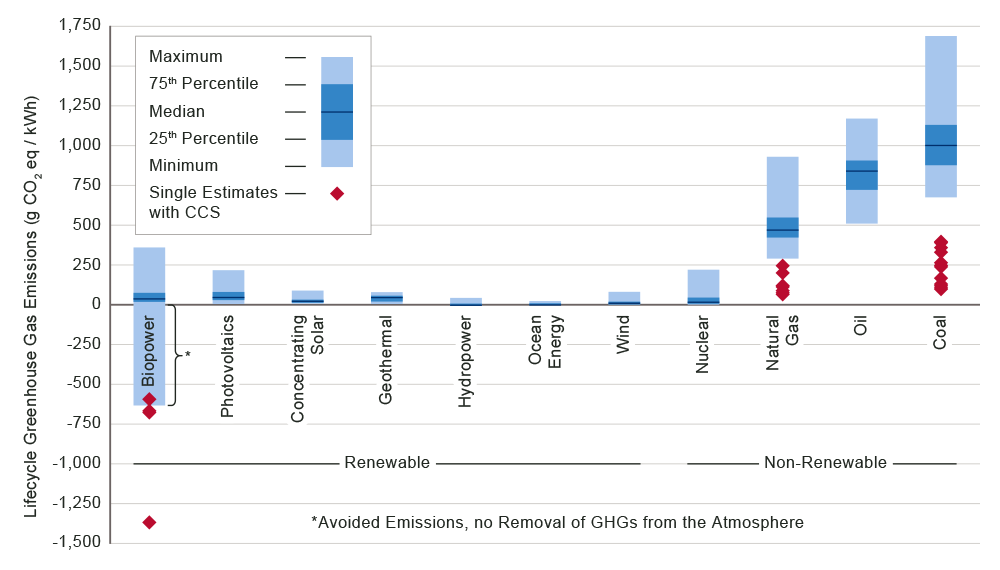Solar panels are becoming more popular than ever as a way to generate clean, renewable energy. But what exactly are they and how do they affect the environment? In this blog post, we’ll delve into the science behind solar panel technology and their impact on our planet. We’ll explore the pros and cons of solar energy production, the various types of solar panels available, and ways to maximize your investment in renewable energy sources. By the end, you’ll have a better understanding of these powerful tools and how they can help protect our planet for generations to come.
Solar Energy: The Greenhouse Gas Emission Killer
Solar energy is a renewable resource that can be used to generate electricity, providing an environmentally friendly alternative to fossil fuels. They convert sunlight into electrical energy, which can then be used to power homes and businesses.

The production of solar panels does result in some greenhouse gas emissions, but these are offset by the reductions in emissions that occur when solar panel-generated electricity is used instead of electricity from fossil-fuel sources. In fact, over the lifespan of a typical commercial solar panel system, the net effect is a reduction of more than 1,400 metric tons of carbon dioxide emissions – equivalent to the emissions from burning nearly 300 railcars’ worth of coal.
When you consider the full impact of solar panels on greenhouse gas emissions – from manufacturing through to electricity generation and disposal – solar PV actually reduces emissions by about 60% compared with traditional coal-fired power plants. And as solar technology continues to improve and become more efficient, those emission reductions are only going to increase.
Solar Panels Reduce Air Pollution
Solar panels have been shown to significantly reduce air pollution. A study done by the National Renewable Energy Laboratory found that, in the United States, if 10% of the electricity came from solar photovoltaics, it would reduce CO2 emissions by 150 million metric tons annually. This is the same as removing 30 million vehicles from the road! Not only would this have a major impact on air pollution, it would also help to fight climate change.
Solar panels are a clean and renewable source of energy that can help reduce air pollution. Burning fossil fuels such as coal and oil releases harmful pollutants into the atmosphere, contributing to smog, acid rain, and climate change. Solar panels generate electricity without emitting any pollutants, making them a much cleaner option for powering homes and businesses.
In addition to reducing air pollution, solar panels can also help save water. Traditional power plants require large amounts of water for cooling, but solar panels do not. This can be a big advantage in areas where water is scarce or drought conditions exist.
Solar Panels Help Preserve Natural Resources
Solar panels are a great way to help preserve natural resources. By using solar panels, we can reduce our reliance on fossil fuels and other forms of energy that can pollute the environment. They also help us save water and reduce our carbon footprint.
Solar panels are a sustainable and renewable source of energy that can help preserve natural resources. Solar panels do not produce pollution or greenhouse gases, making them a clean and environmentally friendly source of energy. In addition, solar panels can help reduce your reliance on fossil fuels and save you money on your energy bill.
More to the Story?
As it turns out, solar panels have a pretty positive effect on the environment! Sunlight is converted into electricity using solar photovoltaic (PV) panels, which can be utilized to power your house or place of business. PV panels don’t create any pollution or emissions, and they have a very small carbon footprint.

In fact, studies have shown that solar PV systems actually offset more greenhouse gas emissions than they generate over their lifetime. So if you’re looking for a way to reduce your carbon footprint and do your part for the environment.
In Closing
Solar panels are becoming an increasingly popular way to reduce our reliance on fossil fuels and help combat climate change. But how do solar panels actually affect the environment?
The main environmental benefit of solar panels is that they generate electricity without emitting any greenhouse gases. Solar panels also have a very small carbon footprint, since the manufacturing process uses very little energy and produces very little waste.
Solar panels also have some other positive environmental impacts. For example, they can help reduce air pollution and smog, since they don’t rely on burning fossil fuels. And since they don’t produce any noise, they can be installed in areas where noise pollution is a concern.
Overall, solar panels have a positive impact on the environment. They generate clean electricity without emitting any greenhouse gases, and they have a small carbon footprint. If you’re looking for a way to help combat climate change, solar panels are a great option.
